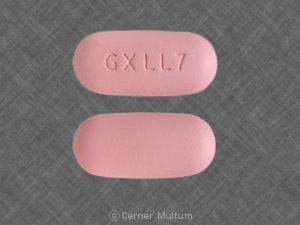Lexiva and Alcohol/Food Interactions
There are 2 alcohol/food/lifestyle interactions with Lexiva (fosamprenavir).
Fosamprenavir Food/Lifestyle
Moderate Food Interaction
Fosamprenavir suspension should be administered on an empty stomach in adults, but with food in pediatric patients to help the taste and compliance. If vomiting occurs within 30 minutes after dosing the suspension, the dose should be repeated. Fosamprenavir tablets may be taken with or without food. It is important to tell your doctor about all other medications you use, including vitamins and herbs. Do not stop using any medications without first talking to your doctor.
Switch to professional interaction data
Fosamprenavir High Cholesterol (Hyperlipoproteinemia, Hypertriglyceridemia, Sitosterolemia)
Moderate Potential Hazard, Moderate plausibility
PIs - hyperlipidemia
Treatment with ritonavir alone or in combination with other protease inhibitors (e.g., lopinavir, saquinavir, tipranavir, fosamprenavir) has resulted in substantial increases in the concentration of total cholesterol and triglycerides. These effects have also been reported with other protease inhibitors but may be the most dramatic with ritonavir. The clinical significance of these elevations is unclear. Marked elevation in triglyceride levels is a risk factor for development of pancreatitis. Triglyceride and cholesterol testing is recommended before starting ritonavir (with or without other protease inhibitors) and periodically during therapy. Lipid disorders should be managed as clinically appropriate.
Switch to professional interaction data
Lexiva drug interactions
There are 510 drug interactions with Lexiva (fosamprenavir).
Lexiva disease interactions
There are 4 disease interactions with Lexiva (fosamprenavir) which include:
More about Lexiva (fosamprenavir)
- Lexiva consumer information
- Check interactions
- Compare alternatives
- Drug images
- Side effects
- Dosage information
- During pregnancy
- Generic availability
- Drug class: protease inhibitors
- Breastfeeding
- En español
Related treatment guides
Drug Interaction Classification
| Highly clinically significant. Avoid combinations; the risk of the interaction outweighs the benefit. | |
| Moderately clinically significant. Usually avoid combinations; use it only under special circumstances. | |
| Minimally clinically significant. Minimize risk; assess risk and consider an alternative drug, take steps to circumvent the interaction risk and/or institute a monitoring plan. | |
| No interaction information available. |
See also:
Further information
Always consult your healthcare provider to ensure the information displayed on this page applies to your personal circumstances.


